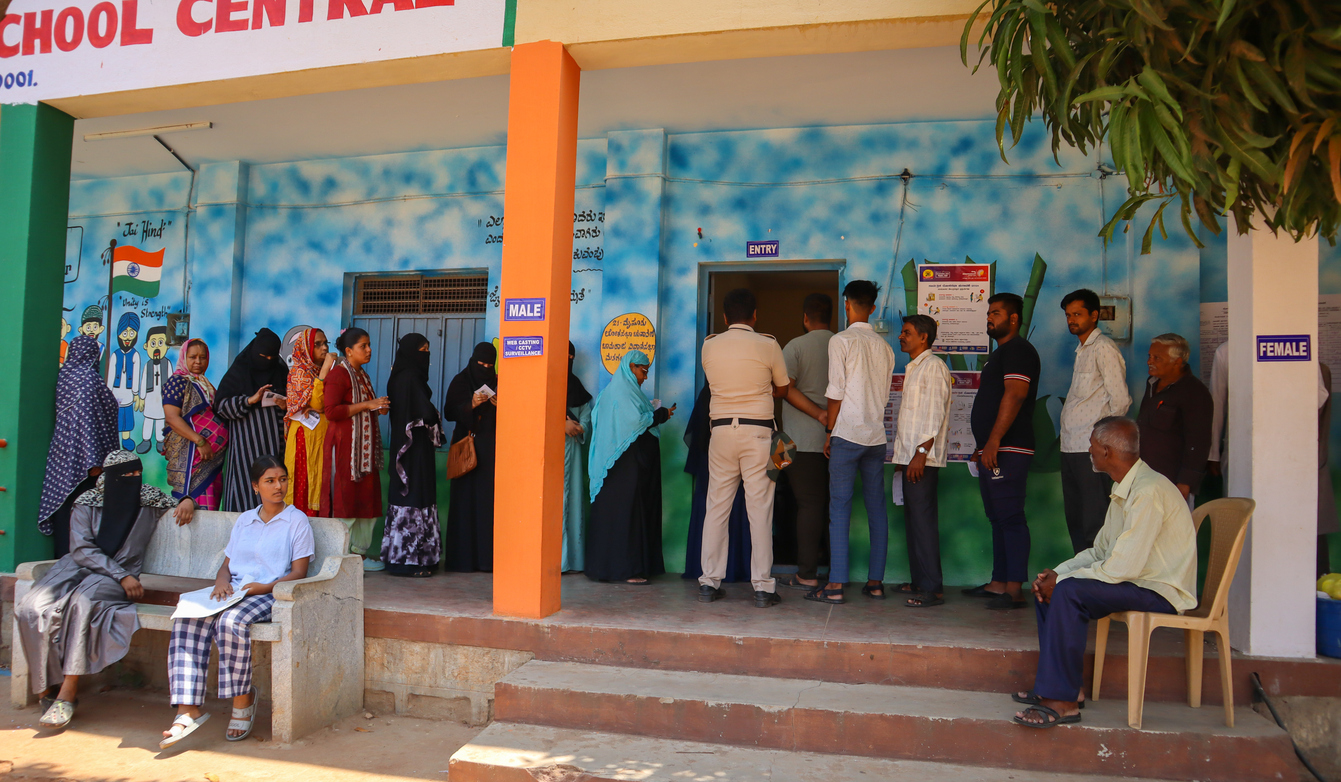Even within the Congress, murmurs of unease persist, though the party defends GO 46 as a "balanced, Supreme Court-compliant" step.
Published Nov 26, 2025 | 1:54 PM ⚊ Updated Nov 26, 2025 | 1:54 PM

Representational image. Credit: iStock
Synopsis: Telangana’s Congress government slashed BC reservations for Gram Panchayat sarpanch posts from 25% to just 17% via GO Ms No. 46, citing Supreme Court’s 50% cap and population data. Facing fierce BC protests and accusations of betraying its 42% poll promise, the state proceeds with December elections, sparking threats of agitation and legal challenges.
In a move that has ignited fierce protests from Backward Classes (BC) across Telangana, the state government has finalised reservations for the upcoming Gram Panchayat elections, allocating just 17 percent of sarpanch posts to BC candidates—well below the previous 25 percent statutory quota and the Congress party’s pre-poll pledge of 42 percent.
Critics, including Opposition leaders and BC groups, have slammed the decision as a “cruel betrayal,” accusing the ruling Congress of diluting an affirmative action under the guise of legal compliance.
The controversy arose from Government Order (GO) Ms No. 46, issued on 22 November by the Panchayat Raj and Rural Development Department, which outlines a data-driven framework for reserving seats in the 12,735 Gram Panchayats set for polls in three phases on 11, 14, and 17 December.
Under the new guidelines, only 2,176 sarpanch positions—approximately 17.08 percent—have been earmarked for BCs, a sharp drop from the uniform 25 percent reservation that prevailed in prior elections.
This allocation, derived from the state’s 2024 Socio-Economic, Education, Employment, Political, and Caste (SEEPC) survey for BCs and the 2011 Census for Scheduled Castes (SCs) and Scheduled Tribes (STs), accords priority for proportional representation within the Supreme Court’s 50 percent cap on total reservations.
The seeds of discontent were sown during the 2023 Assembly elections when the Congress, under Chief Minister A Revanth Reddy, promised 42 percent reservations for BCs in local bodies, education, and jobs as part of its “Kamareddy Declaration.”
This was intended to reflect the community’s more than 50 percent share of Telangana’s population, as revealed by the recent caste census. In February 2025, the government moved to implement this via a bill enhancing BC quotas to 42 percent, alongside increases for SCs to 17 percent (from 10 percent) and STs to 7 percent (from 6 percent), pushing total reservations to 66-67 percent.
However, the ambitious plan hit legal snags. In September 2025, GO Ms No. 9 (later supplemented by GOs 41 and 42) formalised the 42 percent BC quota, but petitions challenging it cited breaches of the 50 percent ceiling under the Indra Sawhney (1992) and Vikas Kishanrao Gawali (2021) Supreme Court judgments.
The Telangana High Court stayed the orders on 11 October, directing elections to proceed under the old Panchayat Raj Act framework, with the additional 17 percent seats (42 percent minus 25 percent) treated as general category to avoid exceeding the cap.
The Supreme Court upheld this on 16 October, dismissing the state’s appeal and underscoring the need for empirical data via a dedicated commission and adherence to the “triple test” for reservations.
The cabinet decided on 17 November to hold elections in December using revised quotas. The Dedicated BC Commission submitted its report on November 20), paving the way for GO 46, which supersedes the stayed orders and enforces rotational reservations under the amended 2018 Panchayat Raj Act.
The GO 46 mandates a sequential, population-based assignment: ST seats first (using 2011 Census data), followed by SCs, then BCs (via 2024 caste survey), all capped at 50 percent total.
In Agency areas, STs get at least 50 percent or full reservation if they dominate the population. Women’s quota (50 percent across categories) is allotted via lottery for transparency.
For sarpanch posts, the formula yielded stark disparities. While SC and ST reservations are in line with their demographic shares—around 16 percent and 9 percent respectively—the BC slice shrank due to the priority given to ST/SC and local variations in population density.
Mandal Parishad Development Officers (MPDOs) computed allocations ward-by-ward, resulting in the statewide 17 percent average for BCs. District-wise breakdowns reveal further inequities: Siddipet leads with 26.77 percent (136 seats), while Khammam lags at 9.46 percent (54 seats).
This shift from a blanket 25 percent to granular proportionality, intended to comply with the High Court’s emphasis on “quantifiable data” and prevent over-reservation, has instead fueled accusations of undercounting BC presence.
The previous 25 percent was a fixed statutory benchmark under the old Act, but GO 46’s method, while legally defensible, has effectively reduced BC opportunities in many rural pockets.
BC organisations wasted no time in decrying the order as “anti-constitutional” and a violation of the statutory 25 percent floor.
On 23 November, activists in Karimnagar burned copies of GO 46, chanting slogans against the “Congress betrayal.” The Joint Action Committee (JAC), led by Rajya Sabha MP R. Krishnaiah, convened a conference demanding its immediate withdrawal, warning of statewide agitation if ignored.
“This is not justice; it’s a conspiracy to sideline BCs after using us as a vote bank,” Krishnaiah said, vowing to approach the High Court again.
The Bharat Rashtra Samithi (BRS), the main Opposition, has mobilised its BC wing for protests starting 27 November, labeling the 17 percent quota a “historical injustice.” Party working president KT Rama Rao accused the Congress of “empty promises.”
Even within the Congress, murmurs of unease persist, though the party defends GO 46 as a “balanced, Supreme Court-compliant” step. Panchayat Raj Minister D. Sridhar Babu stated on 25 November that the allocations ensure “equity without legal risks,” urging BCs to trust the process.
With village administration “severely weakened” by delays, as noted in the 17 November Cabinet resolution, the elections are crucial for revitalising local bodies handling everything from water schemes to sanitation. Yet, the reservation row risks boycotts and low turnout in BC-heavy areas, potentially fracturing the Congress’ rural base ahead of 2026 municipal polls.
(Edited by Amit Vasudev)
